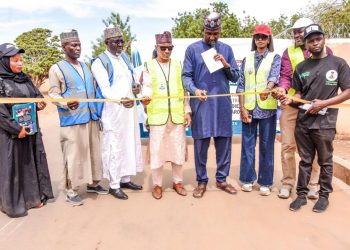By Tina Chinyere – Portharcourt
Traditional rulers from the Niger Delta region have called on the Federal Government to take immediate action to improve the welfare of communities hosting the Trans Niger Pipeline (TNP). During a recent meeting in Port Harcourt, the monarchs expressed concerns over the lack of adequate infrastructure, healthcare, and education facilities in these communities, despite the significant oil and gas activities taking place in the area.
They urged the government to ensure that host communities benefit from the revenues generated by the industry.
The monarchs made the call during a stakeholders’ engagement meeting organized by Pipeline Infrastructure Nigeria Limited (PINL) for host communities in Rivers, Abia, and Imo States.
They commended PINL for stabilizing operations and boosting oil output but lamented that living conditions in their communities have not improved despite increased production.
Leading the appeal, His Majesty Eze Sergeant Awuse, Paramount Ruler of Emohua in Rivers State, stressed that community welfare is essential to maintaining peace and protecting oil assets.
“When the people are cared for, they will protect the assets within their environment,” he said, urging the government to empower traditional rulers for effective community development and conflict resolution.
Similarly, King Samuel Nnee, Coordinator of the Supreme Council of Ogoni Traditional Rulers, decried the neglect of host communities and called for more government support. “It has not been easy with traditional rulers, government should help our communities,” he appealed.
Other speakers, including youth leader Comrade Legborsi Yamaabana and Eze Ekpeye Logbo, King Kevin Anugwo (represented by Dr. Patricia Ogbonnaya), praised PINL’s people-centered approach and urged the Federal Government to retain the company’s services for continued stability and growth in the Niger Delta.
The monarchs also highlighted the growing insecurity and environmental degradation caused by pipeline vandalism, demanding increased efforts to protect both the lives of the residents and the ecosystem.
















